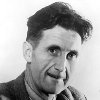“ Every people, to which its situation gives no choice save that between commerce and war, is weak in itself: it depends on its neighbours, and on circumstances; its existence can never be more than short and uncertain. It either conquers others, and changes its situation, or it is conquered and becomes nothing. Only insignificance or greatness can keep it free. ”
Jean-Jacques Rousseau, The Social Contract (1762). copy citation
| Author | Jean-Jacques Rousseau |
|---|---|
| Source | The Social Contract |
| Topic | greatness choice |
| Date | 1762 |
| Language | English |
| Reference | Of the Social Contract, or Principles of Political Law, Book II |
| Note | Translated by George Douglas Howard Cole |
| Weblink | https://en.wikisource.org/wiki/The_Social_Contract/Book_II |
Context
“for, if there is too much land, it is troublesome to guard and inadequately cultivated, produces more than is needed, and soon gives rise to wars of defence; if there is not enough, the State depends on its neighbours for what it needs over and above, and this soon gives rise to wars of offence. Every people, to which its situation gives no choice save that between commerce and war, is weak in itself: it depends on its neighbours, and on circumstances; its existence can never be more than short and uncertain. It either conquers others, and changes its situation, or it is conquered and becomes nothing. Only insignificance or greatness can keep it free.
No fixed relation can be stated between the extent of territory and the population that are adequate one to the other, both because of the differences in the quality of land, in its fertility, in the nature of its products, and in the influence of climate, and because of the different tempers of those who inhabit it;”
source


